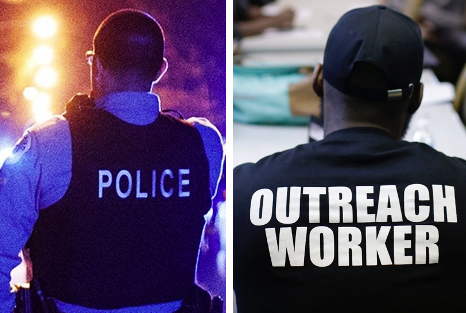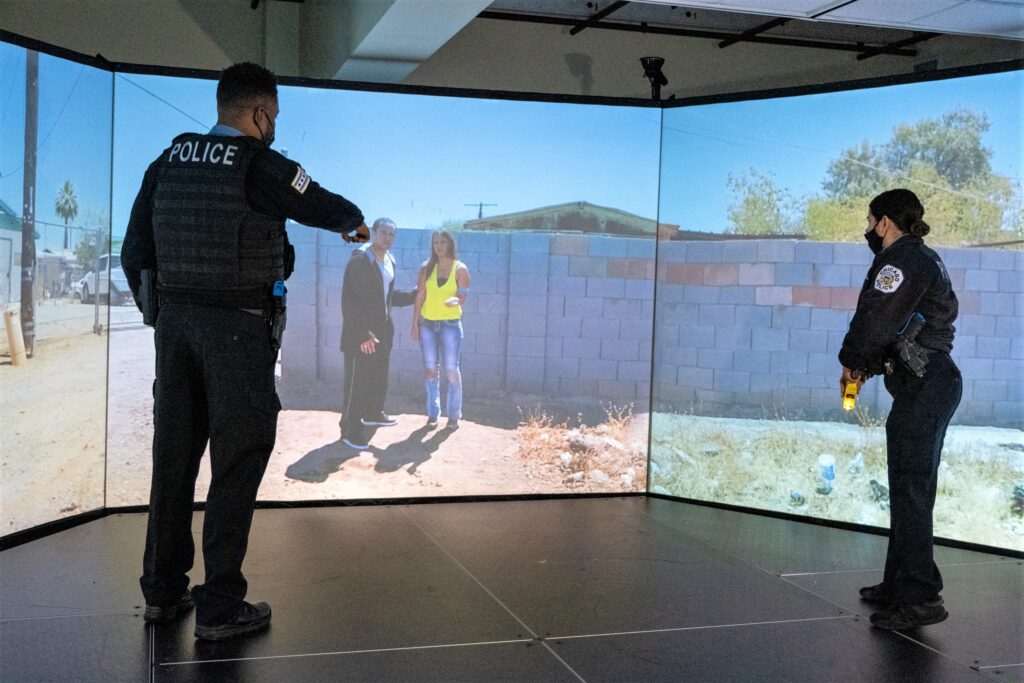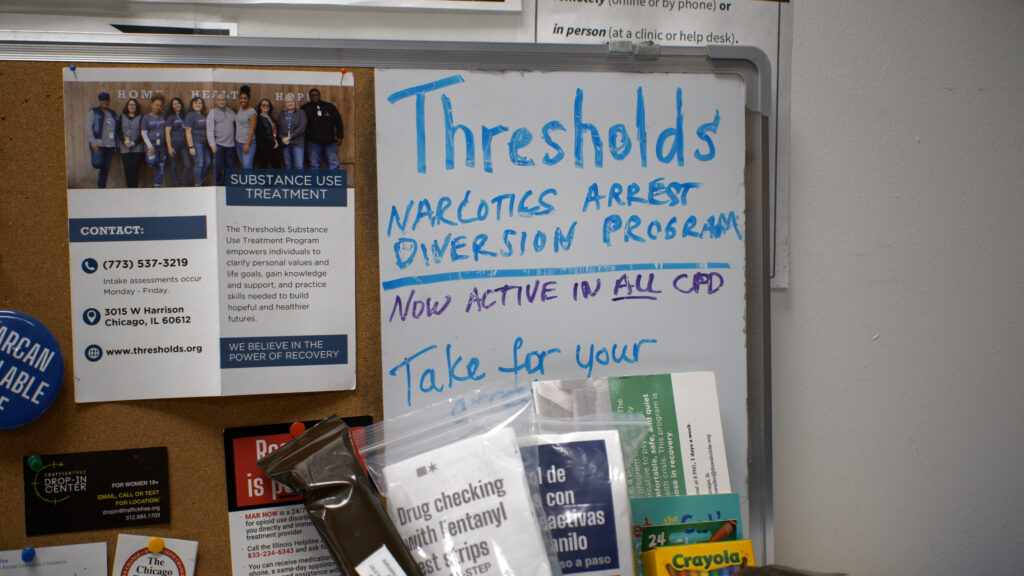
About Us
The US has rates of both gun violence and incarceration that are unheard of in any other rich country in the world, and which disproportionately affect communities of color.
For too long, the public sector has failed to address these overlapping and systemic crises, in part because policymakers view them as a trade-off. But to truly increase public safety, we must find solutions that reduce gun violence and advance justice at the same time.
By the Numbers
Our first 15 years have focused on designing, pilot-testing, and scaling policies with our government and NGO partners across Chicago. In the next phase of our work, we seek to apply key lessons learned and aspire to have national and international impact.
The Crime Lab designs, tests, and scales data-driven innovations to improve the public sector’s response to the dual challenges of America’s gun violence crisis and a criminal justice system that is not truly just.
The values of the Crime Lab are essential to our work and are integral to fulfilling our mission to make communities safer and more just.
Service
We work to create impact at scale for residents of America’s cities, especially for those facing the most severe implications of inequality and racism. We conduct research to meet the highest standards of quality and rigor, and we share our results broadly to generate measurable social good in communities.
Integrity
We understand that it is a privilege that our partners entrust us with data. As a result, we hold ourselves accountable for clear and honest reporting of our research and analysis, even when difficult for key partners or ourselves to hear. We deeply appreciate that each data point represents an individual person, so we conduct our work with the care that they deserve.
Inclusivity
We believe our work has the greatest impact when we incorporate diverse perspectives from outside and inside of our organization. We value the voices of people with on-the-ground experience to offer critical insights to help inform solutions. We strive to create a sense of community and belonging for all staff.
Collegiality
We recognize that reciprocal relationships are key to a positive, productive, and team-focused work environment, in our own organization, with our partners, and with respect to the people we strive to support. So, we push ourselves to communicate more effectively, listen more intentionally, and have difficult conversations when needed.

Our History
The Crime Lab was founded in 2008, in response to both a set of Tribune articles detailing how many school-aged children were being shot and killed in Chicago and the tragic shooting of University of Chicago doctoral student Amadou Cisse. Economists Jens Ludwig and Harold Pollack, and gun violence prevention expert Roseanna Ander were spurred to leverage the research capacity of the University of Chicago to make Chicago and cities across the country safer and more just. Today, the Crime Lab works with national and local partners and has offices in Chicago and in New York, where the Crime Lab was invited to locate in 2015 by the NYC Mayor’s Office.

What We Do
Topics
Criminal Justice Reform
We're advancing long overdue reforms to reduce the harms of America's broken criminal justice system.
Policing
If we want to address America’s gun violence epidemic and save lives today, fair and effective policing is essential. But for too many communities, we are failing to deliver that kind of policing.
Gun Violence
In cities across America, communities face high rates of gun violence and significant harm caused by the criminal justice system – both of which disproportionately impact communities of color.
Community Violence Intervention
Through a combination of street outreach by credible messengers and behavioral science-informed interventions, community violence intervention (CVI) programs help de-escalate stressful situations before they lead to violence.
Youth Violence
Gun violence is the leading cause of death for young people in America. But youth violence interventions can help keep kids safe and reach those who are the hardest to reach.
Methodologies
Behavioral Science
By learning more about human decision-making in stressful situations, behavioral science can help us identify better ways to deal with the harms created by gun violence and a broken criminal justice system — and can help prevent these harms before they occur.
Capacity Building
We help public safety partners maximize their impact by providing technical assistance and evidence-based recommendations to inform program design, implementation, and scaling.
Machine Learning
Machine learning tools continually leverage data to “learn” and improve performance — whether that’s cleaning datasets or analyzing the data within them to make recommendations.
Policy and Program Evaluation
We work with government agencies and community-based partners to rigorously evaluate gun violence intervention programs and criminal justice policy reforms.
Randomized Controlled Trials
Randomized controlled trials are the gold standard in research, producing causal evidence about the efficacy and impact of policies and programs.
Who We Are
Our team is made up of more than 100 experts, with backgrounds in data and behavioral science, policing, community violence intervention, government, and more, all with a shared passion for making our communities safer and more just.
Thank you for your interest in career opportunities with the University of Chicago Crime Lab! We regularly seek passionate, data-oriented, public service-minded individuals to join our team.
Thanks to our data-sharing agreements with public sector agencies and community partners, the Crime Lab can collect and evaluate near real-time crime data to identify trends and design interventions.

Timeline
Recognized by Vice President Kamala Harris for the work of our Community Violence Intervention Leadership Academy (CVILA) at an event that acknowledged the accomplishments of its inaugural cohort at the White House.
Released results from a study of an officer support system that used over a decade of Chicago Police Department data to show it is possible to predict risk of on-duty and off-duty misconduct.
Hosted the graduation of the second and third cohorts of the Policing Leadership Academy (PLA), hosting a total of 70 police leaders from police departments across the country and the world.
Hosted the graduation of the second cohort of the CVI Leadership Academy, a program to educate community violence intervention leaders from across America, in Los Angeles, CA.
Released results from a study of Choose to Change® that shows it is possible to create large and lasting reductions in gun violence and imprisonment among youth who are increasingly disconnected from school.
Launched the first cohort of the Community Violence Intervention Leadership Academy (CVILA).
Launched the first cohort of the Policing Leadership Academy (PLA) with 24 police leaders from departments across the country.
Published results from a study of Situational Decision-making (Sit-D), a behavioral science informed police training program, which found the program can significantly reduce adverse policing outcomes and help close the race gap in arrests.
Celebrated the graduation of the inaugural cohort of the Policing Leadership Academy (PLA), a violence reduction initiative that aims to prevent violent crime, support officers, and improve fairness and effectiveness in policing.
Announced the University of Chicago Community Safety Leadership Academies, a first-of-its-kind initiative to train police and community violence intervention leaders.
Partnered with the City of Chicago and dozens of community organizations to create the Violence Reduction Dashboard, an online tool that makes city-wide data on domestic and gun violence victimization publicly available.
Continued the evaluation of the Narcotics Arrest Diversion Program (NADP) implemented by Thresholds. Promising early results from the evaluation led to the expansion of the program to every neighborhood in Chicago.
In partnership with the Chicago Police Department, rolled out Situational Decision-Making (Sit-D), a training that aims to help police officers make faster and more accurate judgments when handling ambiguous, high-stakes situations.
Partnered with the New Jersey Administrative Office of the Courts to leverage data from a pretrial risk assessment tool to help judges reserve pretrial detention for only the highest-risk defendants and provide a model for other jurisdictions around the country.
In partnership with Heartland Alliance and seven community-based organizations, began an evaluation of READI Chicago, an initiative that provides two years of intensive programming to men at the highest risk of gun violence involvement.
Partnered with the Chicago Police Department, the High Intensity Drug Trafficking Area (HIDTA) program, and Thresholds to design, test, and scale a police-led drug deflection program that connects offenders to substance use treatment in lieu of a criminal record.
Launched a design competition to crowdsource youth violence prevention programs across Chicago. As a result, Children’s Home & Aid and Youth Advocate Programs, Inc. created Choose to Change (C2C) to offer intensive services to youth at risk of future violence involvement.
Launched a study of Youth Guidance’s Becoming a Man (BAM), a behavioral science-informed intervention that helps young men slow down their decision-making to reduce their likelihood of violence involvement.
Released Gun Violence Among School-Age Youth in Chicago, which highlighted the need for evaluations of violence prevention strategies and led to the launch of the Crime Lab’s first design competition.
The Crime Lab was founded following the tragic shooting of University of Chicago doctoral student Amadou Cisse.
The Crime Lab was founded with $100K in seed funding from the provost at the University of Chicago.
The founding of the Crime Lab was inspired by a series of stories from the Chicago Tribune highlighting the impact of violence on school-age children.
Explore More
Our team has designed, developed, and scaled programs and policies in cities across the country to help reduce violence and hold our criminal justice system accountable.
Community Safety Leadership Academies
The Community Safety Leadership Academies, composed of the Policing Leadership Academy and Community Violence Intervention Leadership Academy, aim to educate police and community violence intervention leaders.

Violence Reduction Dashboard
The Violence Reduction Dashboard (VRD) is a publicly available visualization and analysis tool that provides greater transparency and accessibility to near-real-time violent crime data in the city of Chicago.

Situational Decision-Making (Sit-D)
The Crime Lab and the Chicago Police Department (CPD) partnered to create and evaluate a behavioral science-informed training that helps improve officer decision-making in ambiguous, high-stress situations.


Brookings Institution Commentary: Making the invisible epidemic visible
Using new data from a large urban trauma center in Chicago, we document substantial under-reporting of domestic violence at the time of receiving medical care.
Choose to Change®
The Choose to Change® program combines trauma-informed therapy with wraparound supports and aims to reduce youth violence while improving educational outcomes outside of an institutional setting.

Narcotics Arrest Diversion Program (NADP)
The Narcotics Arrest Diversion Program (NADP), implemented by Thresholds, provides supportive interventions for individuals apprehended for drug possession and is the most extensive police-led drug diversion program in the United States.

